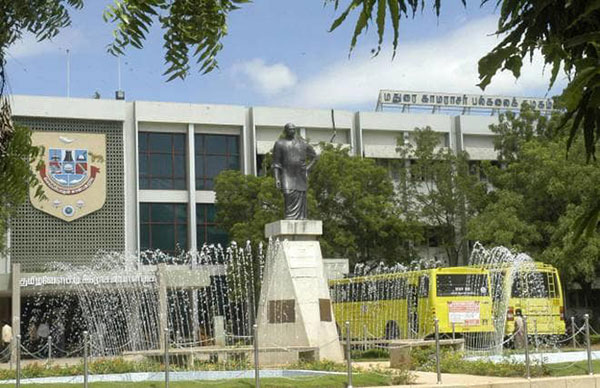AN AMERICAN-STYLE SEX for marks scandal in a sleepy town in the hinterland of Tamil Nadu (pop.72 million) has triggered widespread outrage among educationists, activists and political parties in the state. The scandal became public after a 20-minute audio clip of Nirmala Devi, an assistant maths professor at the Devanga College of Arts (DCA) in Aruppukottai (pop. 87,722) in the mainly rural Virudhunagar district, allegedly persuading women students of the college affiliated with Madurai Kamaraj University (MKU) to exchange sexual favours with officials of MKU for high marks, academic progress and financial support, went viral on April 15. In the audio clip Nirmala Devi also claimed close friendship with Banwarilal Purohit, Tamil Nadu’s governor and ex officio chancellor of MKU, which has 107 undergrad affiliated colleges. The Aruppukottai police arrested Nirmala Devi on April 15 and registered a case against her under ss. 370 (slavery) and 511 (offence punishable with life imprisonment) of the Indian Penal Code, 1860 and s.67 (transmitting obscene material in electronic form) of the Information Technology Act, 2000. The case was transferred to the crime branch of the Criminal Investigation Department on April 17 for an in-depth probe. Simultaneously Purohit who vehemently denied any involvement in the case, also ordered a probe by a one-man committee comprising retired IAS officer R. Santhanam. This unprecedented scandal in a rural backwater of the state has lent substance to continuous complaints of women’s rights activists and educationists who have been alleging widespread prevalence of sexual harassment and oppression of women in Tamil Nadu’s 2,175 colleges and 50 universities. They claim the Nirmala Devi scandal is just the tip of the iceberg. According to them, numerous instances of sexual harassment in colleges/universities are routinely swept under the carpet on the excuse they will bring disrepute to the institute and complainants themselves. In 2003, the Arulmigu Palani Andavar Arts College for Women in Palani district was rocked by allegations that women students of the college were coerced to provide “favours” to a visiting task force of the National Assessment and Accreditation Council (NAAC) which awards A-D ratings to higher education institutions. More recently last October, a medical intern at the Government Medical College and Hospital, Villupuram lodged a complaint against an assistant professor of the college for sexual harassment. However, an inquiry into the complaint remains inconclusive and the medical intern has been shifted to another hospital. The crux of the problem is the dominant patriarchal mindset of society in Tamil Nadu. A majority of university and college administrators — most of them appointed on caste and kith and kin considerations rather than merit — are ignorant of contemporary issues such as gender equality and women’s rights. When confronted with complaints of sexual misconduct, their first reaction is to hush them up, for fear of the victims’ and institutions’ loss of reputation. A second response is to prescribe de-sexualised dress codes for women. Moreover very few, if any colleges (including DCA) have established internal complaints committees (ICC) despite the University…
Tamil Nadu: Sex scandal outrage
